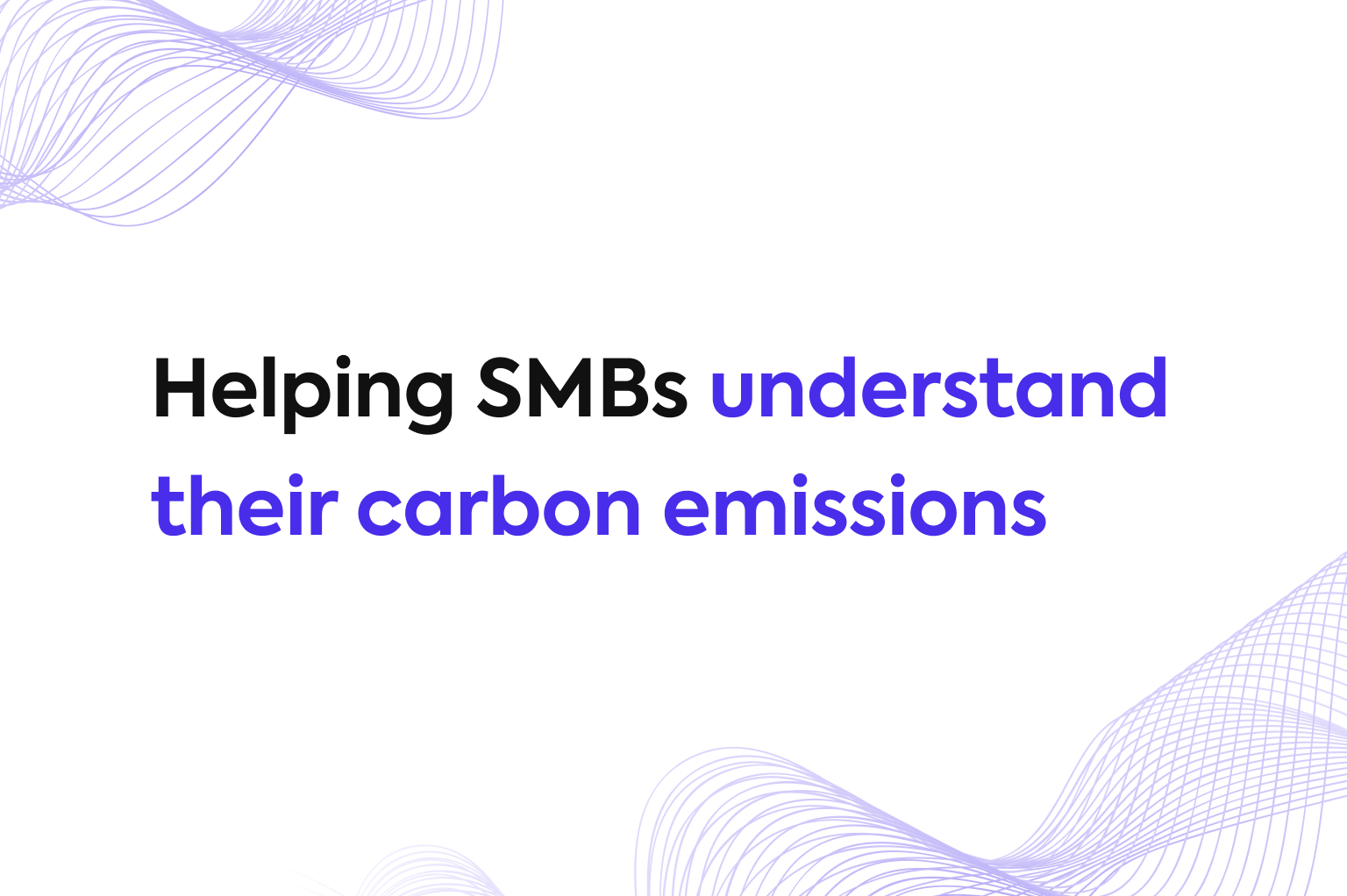
Accounting data can help you build better climate tech products for your SMB customers.
Since the UN Commission on sustainable development launched in 1992 at the Rio Summit, the world has been paying more attention to environmental, social, and governance (ESG) issues.
The private sector has become an increasingly vocal activist for change, exemplified by a huge amount of VC funding focused on climate tech. $34.2 billion was invested in 2021 alone, representing a 600% increase compared to 4 years ago. This has fuelled the emergence of new climate and environmental tech solutions for SMBs that enable them to measure, reduce, and offset their carbon footprint.
Carbon emission reporting is now a legislative focus 🔎
A number of legislation-backed initiatives have been introduced to standardize carbon emission reporting. For instance, the EU Taxonomy and Corporate Sustainability Reporting Directive (CSRD) currently requires banks, insurance providers, and public listed companies to report on environmentally sustainable economic activities. This responsibility will be extended to listed SMBs by FY 2023.
At the moment, most SMBs follow the GHG reporting standard, set out by Green House Gas Protocol in 2001. The Protocol outlines three key scopes that vary in breadth:
- Scope 1: Requires the measurement of GHG emissions that result directly from the operations of a company (e.g. electricity used in the office).
- Scope 2 and 3: Require the measurement of indirect emissions. Scope 3 is the broadest in reach, requiring all emissions created in the process of producing a product to be documented (this accounts for approximately 70% of all emissions).
For SMBs in particular, there are several motivations for minimising their carbon footprint. Apart from the obvious answer that it is good business practice, it can be a differentiating factor with customers. Many buyers are increasingly conscious of the carbon footprint of goods purchased. Lenders, in turn, are increasingly focused on financing sustainable businesses. Therefore, beyond being a good corporate citizen, there is the real incentive of getting access to a wider pool of capital at potentially better rates.
But, how do you actually measure the carbon footprint of an SMB? 🤔
There are two main methods for measuring the carbon footprint of an SMB:
- Spend based: This method involves taking the value of a purchased good or service and multiplying it by an emission factor. This method is quick to approximate but lacks accuracy. For example, if you spend $1,000 on office supplies and equipment, it doesn’t take into account if you purchased locally produced toilet paper or laptops shipped from abroad. There is no visibility into what the individual purchased items are and hence the associated carbon footprint is a broad brush, average estimate.
- Consumption based: This method uses granular data from the full supply chain. Instead of approximating the carbon footprint associated with a general office equipment purchase, it categorizes individual items, detailing the source and mapping all suppliers involved. This is the most robust and accurate measurement of emissions. However, obtaining data on such a granular basis is difficult.
The increasing pressure to measure emissions places additional strain on already time-poor SMBs and is far from straightforward. Most SMBs face real difficulties when it comes to adequately tracking and reporting on these metrics. Few have any real visibility of their supply chain, let alone the carbon footprint of their suppliers.
In response, several start-ups, including Normative, Planetly, and Dodo, have emerged in recent years to address this pain point. They help SMBs measure, analyze, and reduce carbon emissions. Normative and Planetly go one step further and help offset emissions that cannot be reduced organically.
Accounting data is the answer 📊
Access to SMB accounting data is critical to be effective in this space. Below are some examples of how accounting data can be used to accurately assess the carbon footprint of an SMB.
- Account categories available in the General Ledger can be used to calculate SMB emissions by category and benchmarked against peers and industry standards.
- Account payables categorization can be used to identify an SMB’s main suppliers and therefore track the emissions of the entire supply chain.
- Employee spending through green charge cards offers insight into how individual employees impact SMB emissions via purchases and travel.
For SMBs that have set a net-zero goal, the key priority is accurate carbon tracking data across their full supply chain and accounting data is the single source of truth when it comes to calculating end-to-end emissions. Only once this challenge has been tackled, can SMBs focus on reducing and offsetting their emissions.
To buy or build? 🛠️
To gain and retain market share in this rapidly evolving space, envirotech start-ups face two distinct options: they can either build and maintain accounting integrations themselves or partner with an API expert.
Building accounting integrations is inherently time-consuming and costly. It diverts engineering talent from building your core product. There are also many unknown problems associated with integrations, only discovered once you’re deep into a build. Not only is engineering time better spent growing your core product but customer satisfaction can suffer as a result. That’s why the best businesses focus on what they’re good at and leave the building and maintenance of accounting integrations to the experts.
How Codat can solve your integration challenges, quickly 🚀
Codat already works with a range of envirotech platforms, including Dodo and Greencast, helping SMBs measure their carbon footprint by providing connectivity to their accounting platforms. These platforms include Xero, QuickBooks Online, Oracle NetSuite, and Sage Intacct.
Our integrations are standardized to a single data model, allowing clients to build to Codat once rather than having to sink their own engineering resources into building and maintaining each complex integration themselves.
Building on Codat provides the benefit of hundreds of prior optimizations and edge-case fixes, insulating clients from sudden changes in APIs, so they can focus on shipping new features their customers love.
Create an account to start building today or complete the form below to get in contact with our Sales team.

Kathryn Larin, Strategy Manager